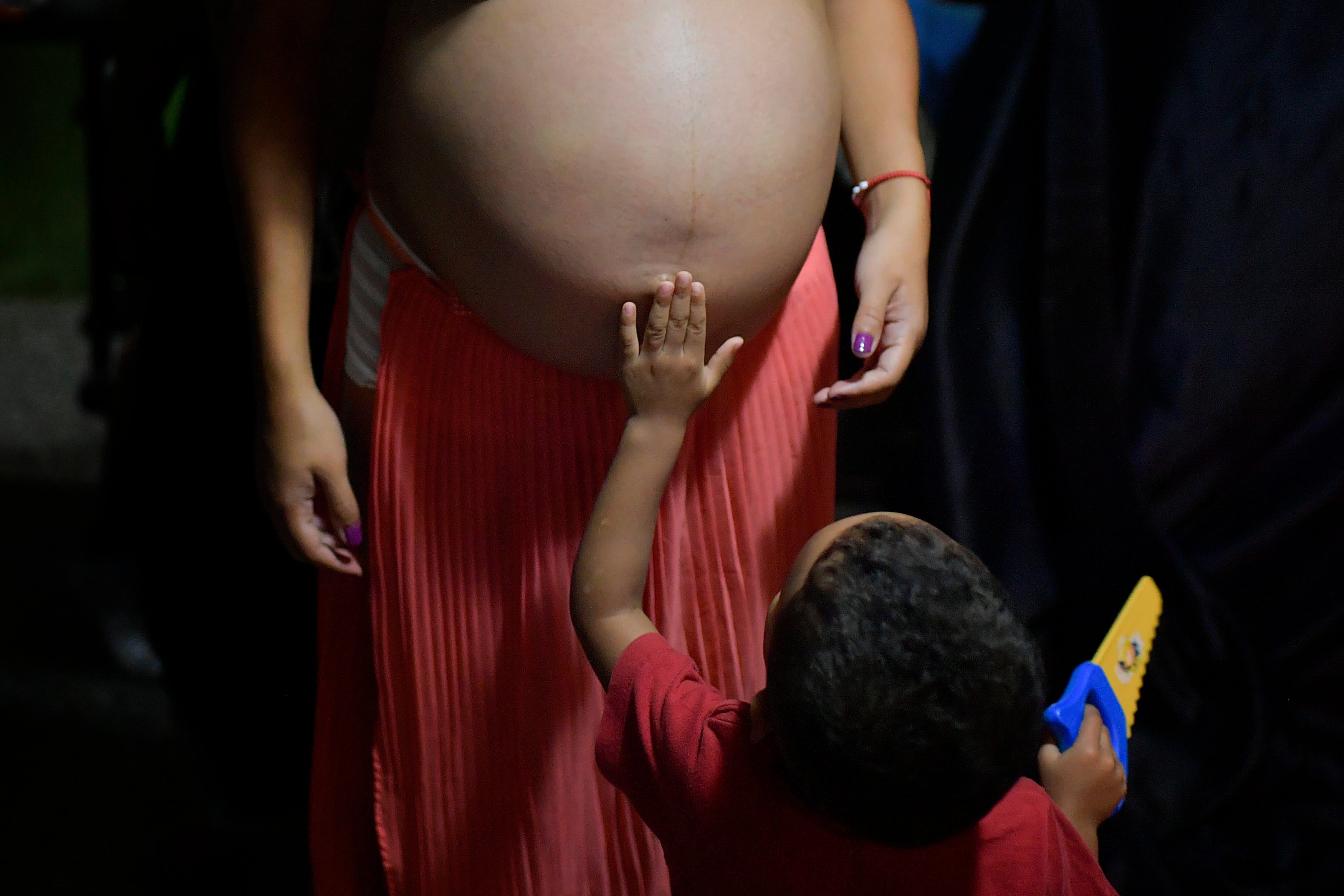AP Photos: Mothers-to-be face challenges in Venezuela

Your support helps us to tell the story
From reproductive rights to climate change to Big Tech, The Independent is on the ground when the story is developing. Whether it's investigating the financials of Elon Musk's pro-Trump PAC or producing our latest documentary, 'The A Word', which shines a light on the American women fighting for reproductive rights, we know how important it is to parse out the facts from the messaging.
At such a critical moment in US history, we need reporters on the ground. Your donation allows us to keep sending journalists to speak to both sides of the story.
The Independent is trusted by Americans across the entire political spectrum. And unlike many other quality news outlets, we choose not to lock Americans out of our reporting and analysis with paywalls. We believe quality journalism should be available to everyone, paid for by those who can afford it.
Your support makes all the difference.The birth of a first baby is usually a source of immense joy for couples. In Venezuela, however, the worries can override the excitement.
Twenty-four-year-old Adaimar Mendoza became pregnant for the first time in the midst of her nation’s worst economic crisis and the COVID-19 pandemic that has disrupted lives around the globe.
As a result of the turmoil, prenatal care has been suspended for women at public hospitals. Women arrive to deliver without prior evaluations to prevent complications. Maternity wards are short on supplies and specialists.
That’s on top of basic issues like getting gas to drive to the hospital at a time when shortages of fuel in the oil-rich nation have grown even more dire.
“It’s like we’re in a penalty round,” said Leo Camejo, Ada’s partner, referring to the high stakes finale of a tied soccer match. “The nervousness is always there.”
Venezuelan women for years have felt the acute effects of their country’s economic contraction, even before COVID-19 hit. Maternal death rates rose over 65% between 2015 and 2016. Contraceptives are unaffordable for most women. Many pregnant women leave, deciding to seek care abroad.
When Mendoza and Camejo learned of the pregnancy, it seemed life had turned upside down.
The couple lives with seven other relatives in the populous neighborhood of Catia in Caracas. Camejo had regular work as a graphic designer, but in recent months he’s struggled to find jobs. So he began selling hamburgers to pay for $20 visits to a private doctor’s office.
They also had to deal with pandemic complications now familiar to pregnant women worldwide. Every trip aboard public transportation brought fears of contagion.
Though officially the country registers about 65,000 cases, a relatively low number, limited testing means that is likely an undercount.
When their baby was born, the couple said seeing her tiny face gave them the courage to face the new obstacles that will come with raising a child in Venezuela.
“When I see Peyton, it’s like looking at Leo,” Mendoza said. “They have the same nose.”